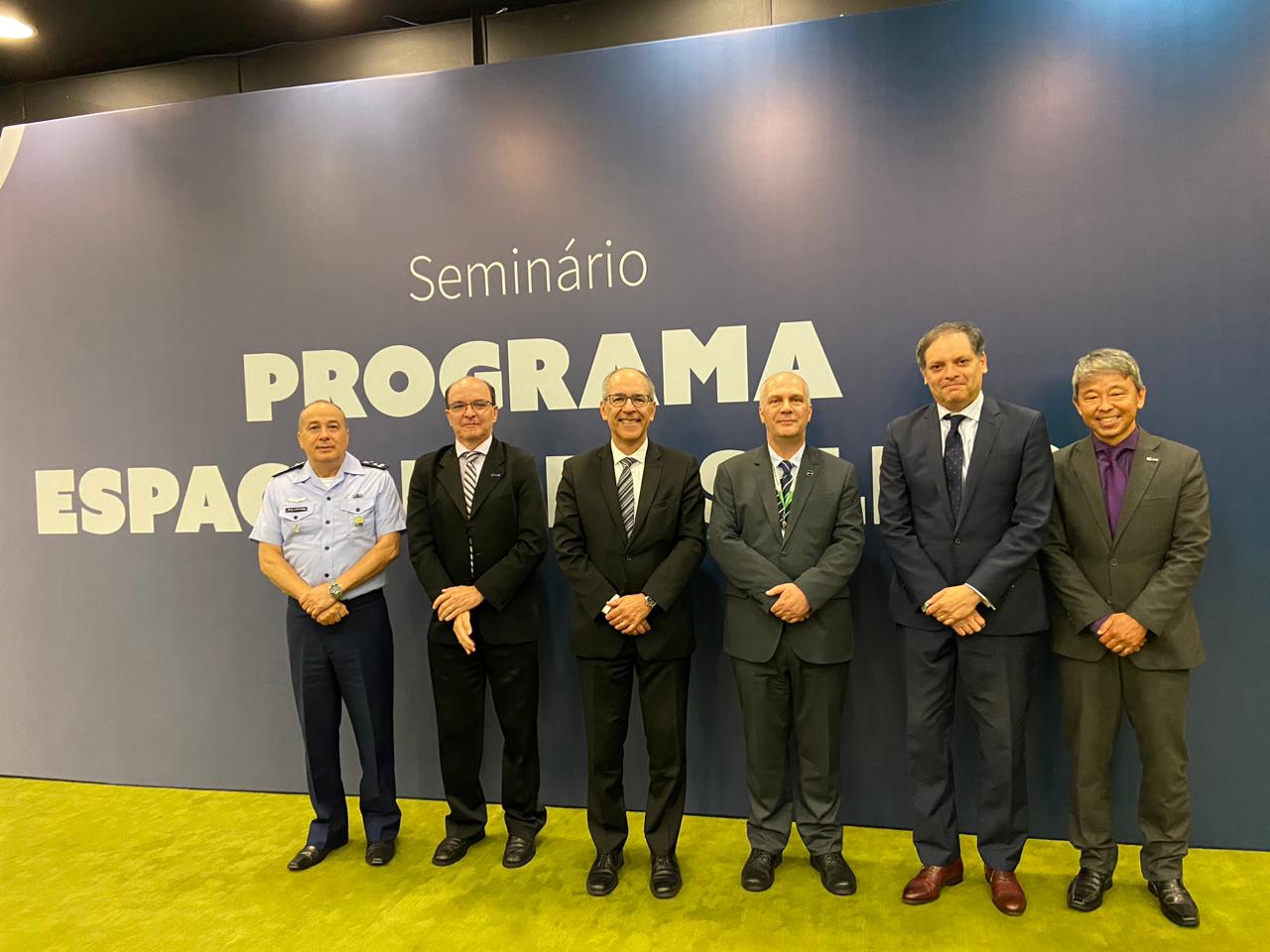Last week, AIAB (Aerospace Industries Association of Brazil) took part in the Brazilian Space Program Seminar, held at the Itamaraty Palace in Brasília (DF).
The event was an initiative of the Ministry of Foreign Affairs and the Alexandre Gusmão Foundation, together with AEB (Brazilian Space Agency), COMAER (Aeronautics Command) and MCTI (Ministry of Science, Technology and Innovation).
Representing AIAB were president Julio Shidara and vice-president Jadir Gonçalves, coordinator of the association’s Space Committee and a partner in the company Fibraforte.
The seminar was divided into four large panels, covering the achievements and lessons learned from the Brazilian Space Program (1), the current panorama of the PEB (2), the international space environment (3) and the future of space exploration in Brazil (4).
In panel 2, AIAB gave a presentation on the space industry’s view of the main challenges facing the Brazilian Space Program.
Julio Shidara highlighted the following needs for consistent progress:
- The program be elevated to the status of a Brazilian State Program, with commitment and predictability in the allocation of resources;
- Definition of long-term strategic objectives;
- Creation of a safe and favorable legal/regulatory environment;
- Synergistic cooperation between institutions in the triple helix of innovation;
- Establishing robust governance and mutually beneficial international partnerships.
“There is an urgent need to adopt structuring and mobilizing projects in the National Space Activities Programme (PNAE) that will enable the definition of long-term strategic objectives and the alignment of PEB initiatives. If we don’t know where we want to go, any path will do,” commented the AIAB president.
“For some years now, we have seen an increasingly restrictive legal environment for contracts between the public and private sectors, despite developments such as the Legal Framework for Science, Technology and Innovation. Whatever the diagnosis of the cause(s), measures are needed, either to improve the legal framework or to seek a new legal interpretation, within the law, that favors the advancement of innovation in Brazil,” he said.
“The case of India definitively shatters the false paradigm that developing countries should not invest in the space sector. It’s exactly the opposite, because space infrastructure and space applications make it possible to efficiently, effectively and efficiently overcome challenges that are typical of developing countries like India and Brazil,” said Shidara.
“By the very nature of orbital systems, the same satellite that serves Brazil can also serve much of Africa, the Middle East, Oceania and South-Central Asia, which are home to dozens of countries that have started to invest consistently in their space programs, which are essential for their social and economic development and for the well-being of their citizens, and are therefore potential candidates for international partnerships with Brazil,” he argued.
“The principle of continuity should be one of the greatest virtues of public administration, so we should build the approval of a new public call from the Financier of Studies and Projects (FINEP) with non-refundable resources from the FNDCT (National Fund for Scientific and Technological Development) for the development of other projects of the Strategic Space Systems Program (PESE) that are part of the Mobilizing Project of the space industry, approved by the CDPEB in 2018,” he concluded.
“It is essential that, at the end of the development by Brazilian industry of the High Resolution Satellite contracted by @FINEP, the supply of a small constellation of this satellite is also contracted to meet national, civil and defense demands, creating a virtuous cycle for PEB,” added Jadir Gonçalves.
The seminar was attended by representatives from various institutions such as AEB, MCTI, the Ministry of Foreign Affairs, the Ministry of Defense, the Institutional Security Office (GSI), COMAER, the National Institute for Space Research (INPE), the International Academy of Space Studies, the Defense College (ESD) and the International Italian-Latin American Organization (IILA).
*** Translated by DEFCONPress FYI Team ***
